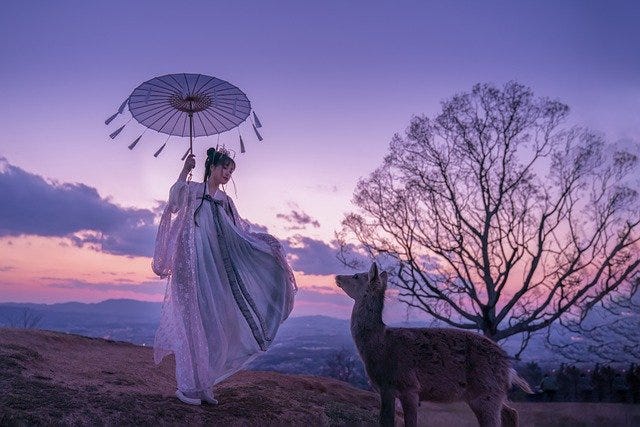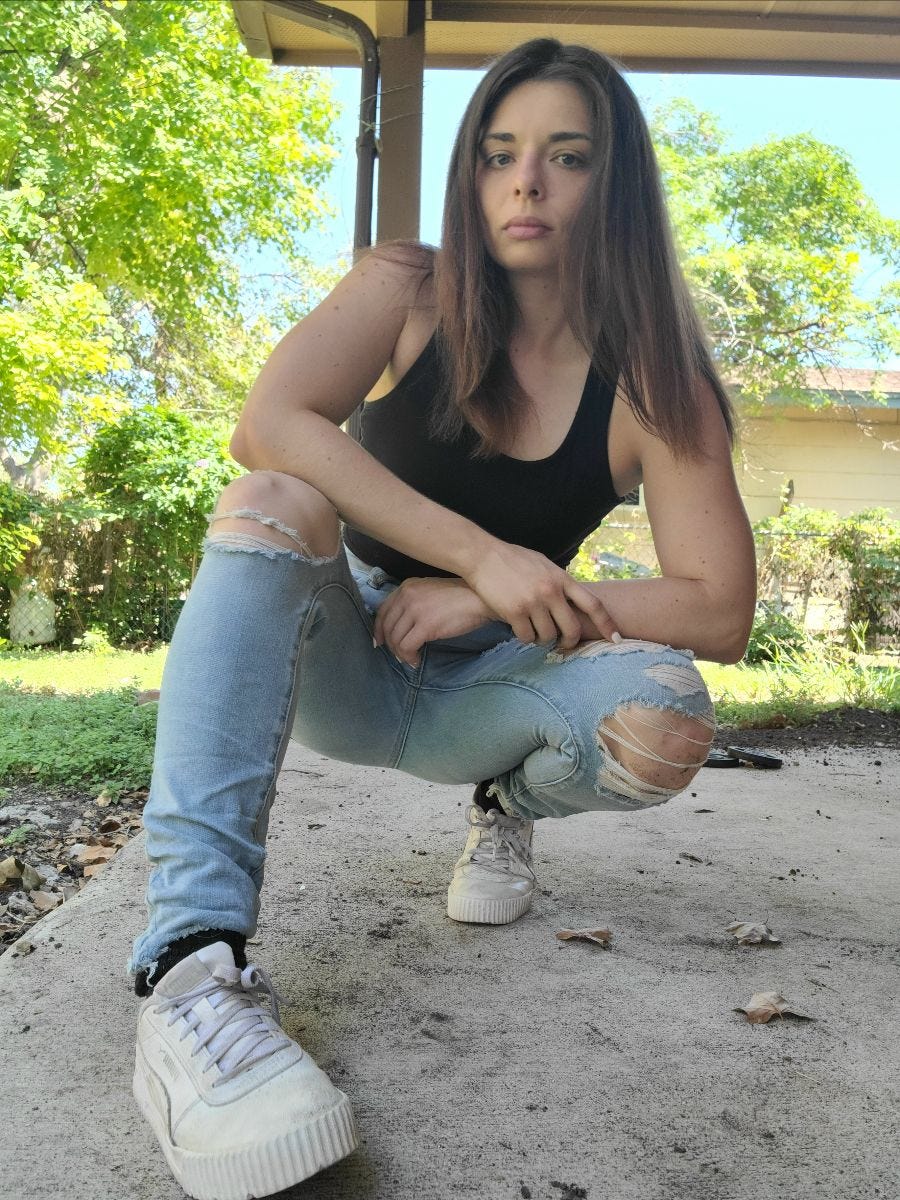"“Depression is partly a nocebo effect, in the sense that it can be produced by negative exceptions about oneself and the world. The way in which these negative expectations develop and produce their negative effects provides some clues as to how they can be reversed. Expectancy effects grow, feeding upon themselves." - Irving Kisch
I used to think I belonged in the darkness. I felt most comfortable in depression, eyes closed, my body shoved into a corner and my arms crossed tight. When all of my boyfriends were gone. When I sat alone in the office at 3 in the morning working, drinking stale coffee on an empty stomach. Or when I was sweating, pressed drunk into a mattress, in the arms of someone I didn't even like.
Every time everything went wrong in my life and once more I found myself in a backyard, leaning against a fence and vomiting, I thought to myself that I was exactly where I was supposed to be.
Every time I went to a therapist and they prescribed me medications, diet, sunlight—I knew I wouldn't take their advice. I knew that if I was no longer unhappy a piece of me would die: the part of me that circled around and around the maw of the abyss and pulled small, glittering sharp things out of the dark. I wanted to live my life as one long spiritual experience. I wanted to bloom on the edge of my sadness like a strange flower.
Nobody who was anyone important was "happy." Happiness was for idiots and puppies. That's what I told myself.
And I had everyone also telling me, with smiling eyes, around tables of whiskey and beer, "Writers are supposed to be depressed. Writers who are happy lose their edge." I believed them, because the best always seemed to commit suicide, and I'd never read a happy poem that didn't bore me so badly it made me want to obliterate all the light inside me.
I didn't know at the time they were (trying to be helpful) idiots and I was their dancing monkey. The spastic girls with tears flowing, passed around like a party favor. Writers are supposed to be depressed. I wailed like an ambulance, and even enjoyed the way I embarrassed myself, because I felt like it meant I was committing some brave act of art.
But I wasn't living in the darkness. I was just blind. And in the glaring sunlight of reality all of my flaws were obvious to anyone who knew how to look.
The darkness was only comfortable because every time I stepped out into the light I saw my inadequacies and didn't like them. Because knowing they existed meant I couldn't ignore them. And if I couldn't ignore them, I'd have to do something about them. that I’d seen the opportunity to become more and told myself “no.”
And the fact was, being depressed was boring. Lying in bed all day. Sheets sticky with anxiety. Losing weight and never being satisfied. Sitting at my computer with my tears flowing, angry at myself for being unable to write anything real.
I'd convinced myself that I'd lose my writing voice if I stopped being depressed. And a part of me was correct. But that writing voice was a sad fragment of my full potential. Sadness was powerful, but it also limited my perspective. It was difficult to write about anyone but myself, and I did not have the ability to dive into other emotions or get different insights. Looking back on my old articles from that time I can see my voice was fractured. I was lost in a sea of deconstructed ideas and emotions.
I wasn't just depressed. I was delusional. Lost in this psychotic, fragmented mess where I believed up was down, that happiness was bad and sadness was rich. The place where I believed punishing my body meant I understood something about myself that the people who loved themselves didn't. That I saw reality for "how it really was" just because I couldn't be bothered to work on myself enough so I could have a life worth living.
I was an idiot.
And my depression got so bad that at many points I wasn't writing at all. There's nothing worse than a writer who isn't writing. I often felt unmoored and hopeless. As long as I was sitting down producing work, I could handle the worst of my sadness. But when the words couldn't come because I was lost in bone-crunching despair? Taking pills that made me sink down into the couch? Drinking giant glasses of wine so I could sleep more than three hours a night? The nihilism draped itself around my bones like dissolving acid.
The romanticism of depression lost a lot of its charm when I wasn't able to be creative.
It wasn't as difficult as I thought it would be to find my way out of depression, once I was willing to take the risk. Once I'd sunk low enough to realize there was nothing new in sadness for me to find. That it was either recover now, or spend the rest of my life crying inside of cupboards and living alone, collapsing underneath the weight of my own bullshit. Depression didn't make me special. It didn't give me a creative edge. It was the easiest thing to be. It was a trap. It was a mouth waiting to devour the young and the reckless. And it had devoured millions of artists before. Those who'd seen a garden glittering in the dark only to lose themselves to the predators waiting.
The best writers weren’t great because of their depression. They were great in spite of it.
My writing voice changed when I got out of depression. So what? What I can write now is much more rich and varied than anything I ever came up with when I was stuck in the pit of my own inadequacy. I no longer waste hours, if not weeks, to the overheated bedsheets, blackouts, self-loathing, and self-destructive binges that categorized my early 20s.
When you stop being depressed, a part of you wakes up. I can't think of anything better for an artist than being excited to be alive, and wanting to understand the world in all its facets. People associate happiness with comfort and stagnancy, but for me it's more of an excited, rolling forward momentum. When I'm happy I want to keep going and going. I want to explore everything the world has to offer.
The notion that people who are depressed see the world "how it really is" is a lie that your brain is perpetuating because it doesn't want you to change. Depression could be hell, but it's the hell that you know.
A human will always revert to the option that requires them to change nothing about themselves. And everything unfamiliar, even warm sunlight and good food, will often feel like an assault on the senses if you're not used to it. You'll want to retreat back to your default. To what's comfortable.
So ask yourself. Is "comfort" good for the artist? Are you telling yourself that you're being bold and revolutionary in your sadness so you don't have to struggle in unfamiliar ways? Are you accessing some deep, hidden part of your humanity or are you just treading ground that has been tread a thousand times?
Do you own the darkness, or does it own you?
And do you think your art will be better or worse if you move toward some unknown in search of an inspiration that could change everything about your life?
I won't say there's nothing to be afraid of in moving toward happiness. You could lose everything. That often happens when you realize you've been living a lie and telling yourself it's a revelation.
And I’m not the same person anymore. That’s true. A piece of me did die when I clawed myself out of depression.
Good. It needed to die.





